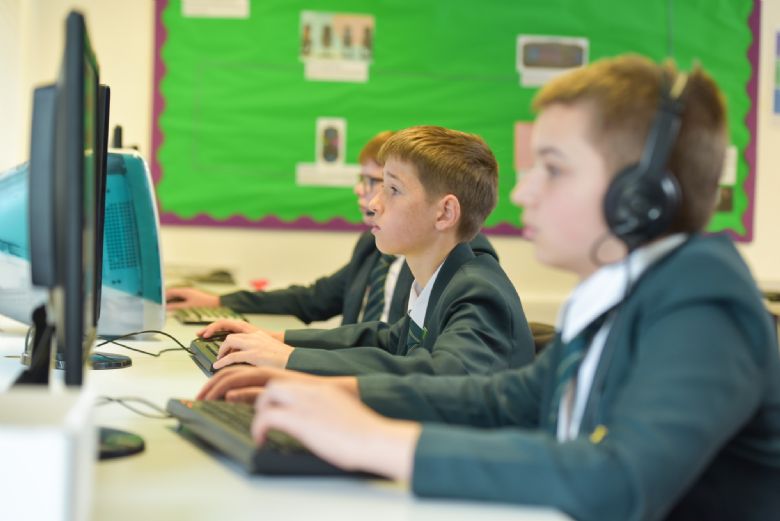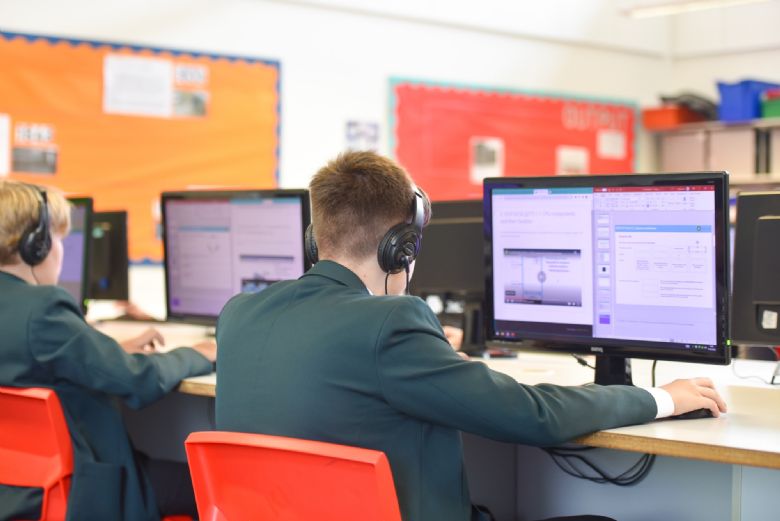Welcome to the Computer Science Department
- Mr Neil Brand - Curriculum Leader
- Mr Chris Legg - Teacher and Assistant Head Teacher
- Mr Mr Patrick Garlick - Teacher
What is Computer Science and why is it important?
Computer Science is the study of computers, how they are made, controlled, and used in the modern world. Through the study of Computer Science students learn essential life skills in how to innovate, solve problems, and find efficiencies in daily tasks. All students should understand how technology is used to collaborate, benefit society and to be responsible digital citizens.
What do students learn in Computer Science?
|
|
|
|
|
|
Challenge and support in Computer Science
Within the department, we take the opportunity to provide learning opportunities that are adapted to individual learners. Using online platforms and curriculum time with skilled staff ensures students are able to understand the core concepts, whilst being introduced to complex programming concepts and a deeper knowledge of how computer systems are developed.
How is Computer Science assessed?
- In KS3 students are assessed after each unit of work. The assessment consists of a portfolio of work and multiple-choice online assessments.
-
Assessments in KS4 will be a range of extended writing, multiple-choice and exam questions from the bank of questions supplied from Edexcel.
-
Seneca is a comprehensive and powerful learning environment that will empower students to focus on their learning needs and support review and addressing knowledge gap
Exam board and Specification Outline
-
We follow the Edexcel GCSE Computer Science specification (1CP2), a programme designed to open doors to creativity and problem solving. Students experience two key elements: a written paper and an onscreen programming exam. This is provides an opportunity to bring ideas to life and demonstrate coding skills in real time. It has an approach that reflects our vision of making learning meaningful and rooted in real-world contexts.
Paper 1: Principles of Computer Science (1CP2/01)
Written examination: 1 Hour and 30 minutes
50% of the qualification
75 marks
Paper 2: Application of Computational Thinking (1CP2/02)
Onscreen examination: 2 hours
50% of the qualification
75 marks
Learning beyond the classroom
Home learning in Computer Science is well-placed to support the content presented within the classroom. It is also utilised to ensure that previously learnt knowledge is not forgotten as we progress through Years 9 – 11.
We have successfully implemented Seneca, which provides a comprehensive e-platform aligned with the course content. Students can see first-hand which areas they have embedded knowledge; it also provides targeted content that can support weak areas of the course. Home learning will be set on a weekly basis in line with the school policy.
Where can Computer Science lead?
Computer Science is available in a wide range of course beyond KS3 and GCSE. Local colleges and learning providers will offer A-Levels, T-Levels and apprenticeship opportunities in the local community.
Learning can also progress into higher levels of study via degree courses, sponsored degrees through employment routes and Apprenticeship degrees which are to be developed year-on-year.



